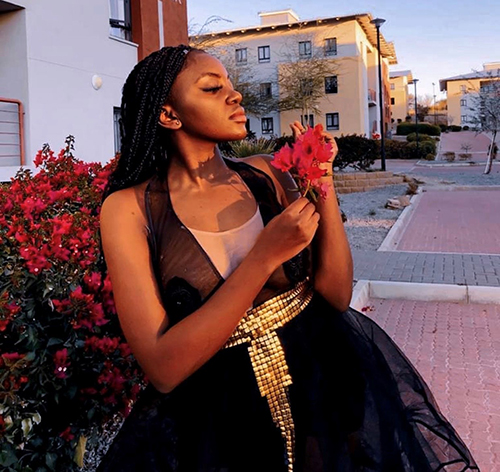Claudia Diana Indileni Nandumbu
If we think about women and men, some people, especially feminists, think of the term ‘equality’, where both genders are supposed to be treated in the same manner in societies.
But, is this the type of social intervention needed in our communities?
As partially mentioned before, equality refers to the state of being equal especially in status, rights or opportunities, while equity refers to the quality of being fair and impartial.
Before we get to it, let’s look at dating.
When it comes to dating, especially if it’s the first date, men are the ones encouraged to pay the bill and not necessarily women, unless the two discussed earlier on who should pay the bill or if maybe they should split it.
Another thing is in terms of pursuing: men/boys are perceived as the ones who pursue girls in terms of courtship and not the other way around.
However, if you’re a woman and you decide to pursue a man, society labels you as being too desperate. I believe sometimes this is the case, as most guys find some women intimidating, so the woman is somehow forced to make the first move as a result of them being seen as “too much of a woman”, which hinders the guys from reaching out and so on.
This right here is a sign on its own that females and males can never be equal.
Feminism is a theory established originally by white women in western countries as they were oppressed, abused and treated horrifically like trash by men.
This establishment was implemented for equal rights for women as well as freedom of speech.
Unlike western women, African women never really needed this theory, as it is believed to be foreign and introduced during colonial times.
African women were equally yoked with men; community roles were divided by age groups and not gender.
Elderly women were considered the goddesses of the universe; pregnant women were highly protected and regarded as ‘Bottles of life’.
Women held significant roles both politically and socially.
But the minute the white man set foot in Africa, he brought gender discourses; therefore, African men started treating women the way white men treated theirs.
I believe that nowadays, the way feminism has been taken, especially from the western world, no longer serves us as African women.
Therefore, it does not go with the way of our lives, rights and gender roles.
Ergo, men and women can never be equal.
This is where equity comes in; instead of women and men trying to be on the same level, they can both try to accommodate one another in such a way that they can complement each other.
For example, when it comes to a couple or married people in general, the woman doesn’t always have to do the household chores; the husband can help out as well wherever he can and vice versa, whereby the woman can help out the man by changing a tyre.
Another thought is instead of social revolutions, men can transform societies by including women in the world, which, if I remember correctly, can be described as Nego-feminism, where both genders side-by-side as men and women try to negotiate their spaces in life.
To sum it all up, we should strive for equity rather than equality, because both males and females are unique genders of significant value in this world and deserve to be treated with honour and respect.
Marcus Garvey once said, “A people without the knowledge of their past history origin and culture is like a tree without roots”.
It is, however, up to us to try and change our ways to stick to our roots of how things were before the white man came and colonised our countries, feeding us with foreign ideologies.
* Claudia Diana Indileni Nandumbu is a writer, English studies honours degree holder and blogger. You can visit her blog site at https://www.acalliesblog.wordpress.com



